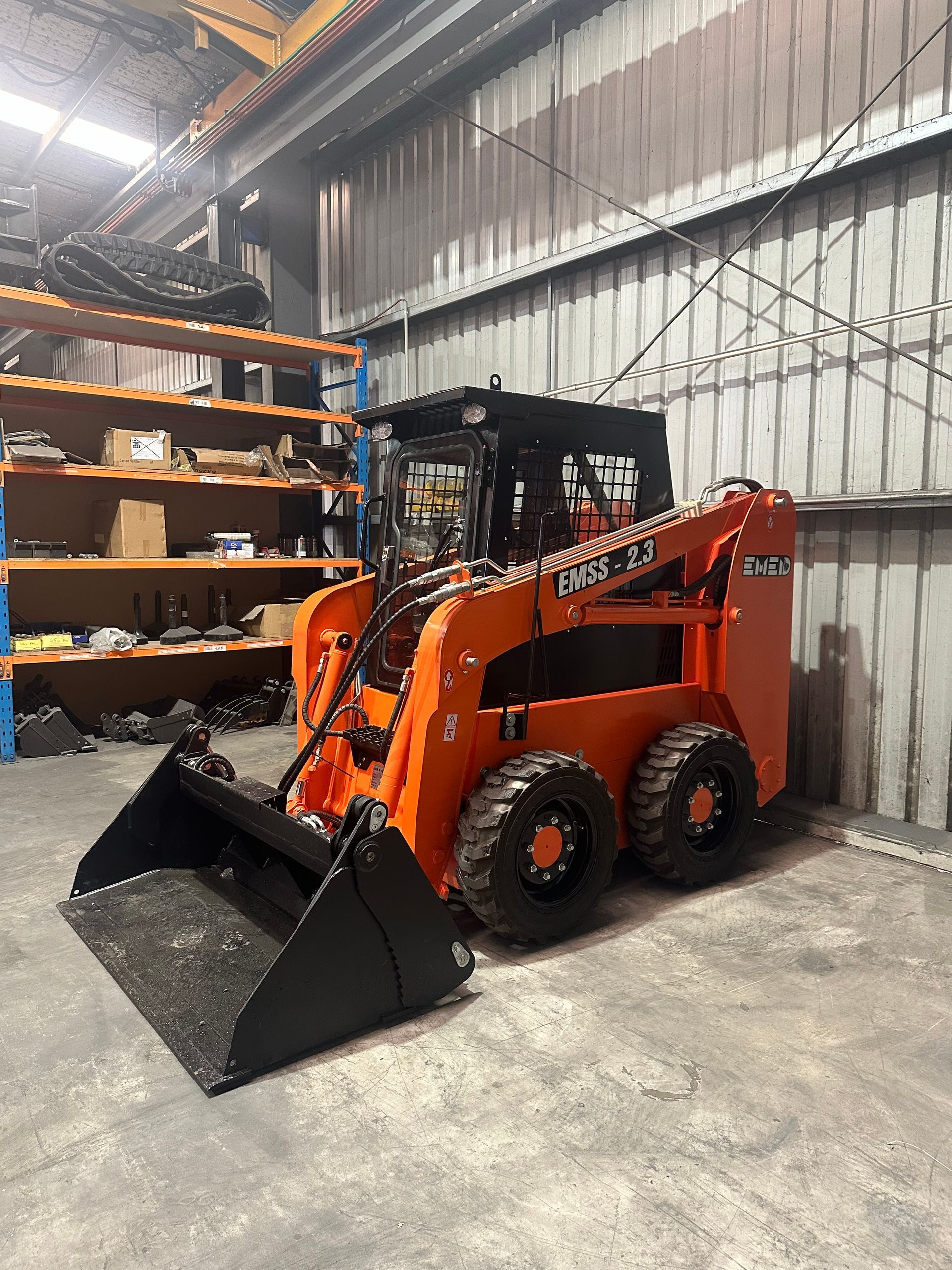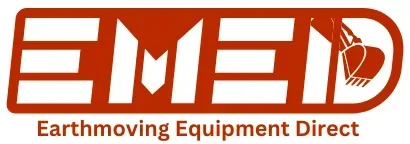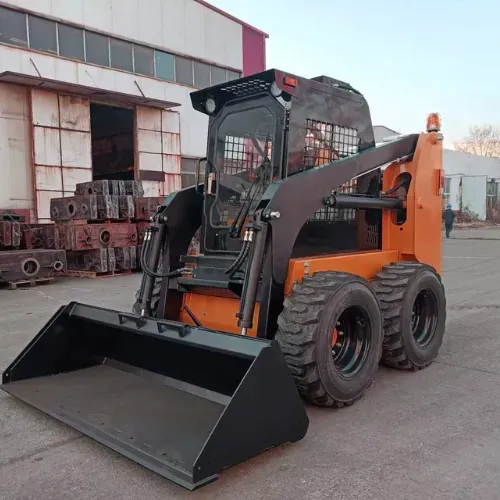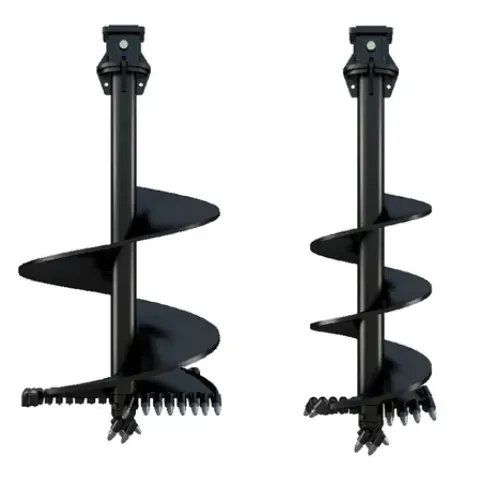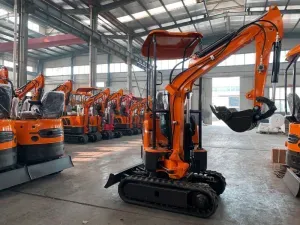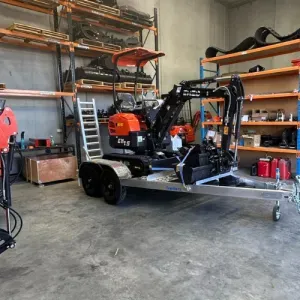Shop our range of products with shipping Aus-wide!
Plant and equipment trailer sales: the perfect combination
Equipment transportation is a constant factor that must be considered across the construction industry. Regardless of your business size the need to take your machinery from one job to the next is a critical component for operational efficiency. That’s where plant and equipment trailers come in.
A plant and equipment trailer is purpose-designed for transporting machinery, equipment, and plant components in construction, agriculture, or industrial settings, and are generally fitted with multiple axles, ramps or hydraulic systems to facilitate the seamless loading and unloading of heavy machinery.
This blog will guide you through what you need to know when buying plant and equipment trailers, looking at the different types of plant and equipment trailers and the key features to consider when buying one.
Types of plant and equipment trailers
Knowing the different types of plant and equipment trailers will help you make an informed decision on which trailer would be most suitable for your needs. The most commonly used plant and equipment trailers are:
- Flatbed trailers: Features an open platform, making them ideal for transporting a wide range of equipment. Their straightforward design simplifies loading and unloading processes, offering flexibility for various cargo sizes and shapes.
- Lowboy trailers: Designed with a low deck height, lowboy trailers are perfect for transporting tall or oversized equipment, making them a preferred choice for heavy machinery that exceeds standard height limits.
- Gooseneck trailers: Gooseneck trailers utilise a forward extension that connects to the towing vehicle. This design provides better weight distribution and stability and allows for easier navigation through challenging terrains.
- Drop deck trailers: Featuring a lower deck in the rear, drop deck trailers, also known as step deck trailers, offer additional clearance for taller equipment. This design accommodates higher loads while maintaining stability, making them suitable for various heavy cargo.
- RGN trailers (removable gooseneck): RGN trailers have a detachable front, allowing easy loading and unloading by simply removing the gooseneck section. This makes them ideal for transporting large, heavy equipment, such as bulldozers or excavators, without needing elaborate ramps.
- Tag-along trailers: Commonly used for smaller equipment, tag-along trailers attach directly to the towing vehicle. They're popular for transporting smaller loads or equipment within weight limits.
Key features to consider when buying plant and equipment trailers
A plant and equipment trailer is more than just an asset - it’s a strategic decision that could significantly impact the ease at which you can transport your equipment.
Here are some key features that you need to consider when you’re planning to purchase one:
List of Services
-
Payload capacityItem Link List Item 1
Knowing the payload capacity of the trailer ensures that it can safely and effectively transport the machinery you intend to move. Choosing a trailer with an inadequate payload capacity could lead to overloading, compromising safety, and potentially damaging the equipment and the trailer.
-
Loading mechanismsItem Link List Item 2
Evaluate the loading mechanisms, ramps or hydraulic systems, etc, to ensure a manageable loading and unloading process. Choosing a trailer with user-friendly loading features enhances operational efficiency, reducing labour requirements and downtime at job sites while improving overall productivity.
-
Trailer sizeItem Link List Item 3
Trailers come in different sizes, and the size you require depends on the equipment you intend to transport. Measure your machinery's dimensions to ensure a comfortable fit on the trailer without overhang. Consider the length, width, and height of the trailer bed. Additionally, determine whether a single-axle or tandem-axle trailer is more appropriate for your needs.
-
Adjustable configurationsItem Link
Opt for trailers with adjustable configurations to accommodate various equipment sizes. This flexibility allows for versatility in transporting different machinery, making the trailer a versatile and cost-effective solution for various projects.
-
Trailer deck materialItem Link
The choice of trailer deck material directly influences load capacity, durability, resistance to corrosion, maintenance requirements, traction, weight considerations, and overall cost. Trailers typically feature steel or aluminium decks. While steel is durable and can handle heavy loads, it adds weight to the trailer. Aluminium decks are lighter, making towing easier, but may have a lower weight capacity. Choose a material that strikes the right balance between strength and weight, aligning with your business requirements.
-
Braking systemItem Link
Hydraulic or electric brakes are popular choices, offering improved control and safety for heavy loads. Confirm that the brakes adhere to local regulations to prevent potential legal complications.
-
Suspension systemItem Link
Air suspension is a popular choice and is favoured for its smooth ride and adjustable features for different load sizes. Alternatively, leaf spring suspension provides durability and ease of maintenance. When selecting a suspension system, consider your intended use for the best fit.
-
Cost-effective customisationItem Link
Choose trailers that offer cost-effective customisation options, allowing you to tailor the trailer to your specific needs without unnecessary expenses. Customisation features, such as additional accessories or adjustable components, contribute to the trailer's ability to accommodate a wider range of equipment types safely and securely.
If you're looking for reliable and high-quality plant and equipment trailers for sale, choose Earthmoving Equipment Direct . Our trailers are made from the highest quality materials, are 100% Australian-made trailers, and purpose-built for durability, optimal safety, and simplified loading and unloading operations.
FAQs
-
How can I determine the towing capacity of my vehicle for a specific trailer?
Refer to your vehicle's specifications, particularly the towing capacity outlined in the owner's manual or by the manufacturer. Exceeding the recommended towing capacity can strain the vehicle and compromise safety during transportation.
-
Are there specific regulations for transporting oversized equipment with a plant and equipment trailer?
Yes, oversized load regulations vary by region, and it's crucial to be aware of these rules. Permits may be required, and compliance ensures safe and legal transportation of oversized equipment.
-
What safety features should I look for in a plant and equipment trailer?
Prioritise trailers with features like brakes, lights, and reflective markings. These ensure compliance with safety regulations, enhance visibility on the road, and contribute to a secure transportation process.
-
Does Earthmoving Equipment Direct deliver Australia-wide?
Yes, we deliver anywhere in Australia.
-
Where can I get spare parts and additional attachments from?
EMED stocks a wide range of attachments and spare parts for all our machines; these can be purchased online or via phone or email.
-
Do you offer warranties or service maintenance?
At Earthmoving Equipment Direct, we provide a 3-year warranty and lifetime support. Our comprehensive 1-year labour guarantee ensures assistance in the rare event of a breakdown, including local repairs, sending a mechanic, or exploring alternative solutions for prompt restoration. Additionally, a 3-year parts warranty covers non-wearable items from the date of purchase, ensuring uninterrupted machine performance.
Speak to our team about our trailer options
To learn more about our plant and equipment trailer options or to start the order process,
reach out to a member of the Earthmoving Equipment Direct team today. Our Australian-made trailer offers a cost-effective transportation solution and can also be sold as part of a machinery combination package. Get started with an order now by giving us a call or completing our online form.
Quick links
Showroom
Factory 3, 217 Colchester Rd, Melbourne VIC 3137, Australia
1300 020 317
Trading hours
- Monday
- Closed
- Tue - Fri
- -
- Saturday
- Appointment Only
- Sunday
- Closed

